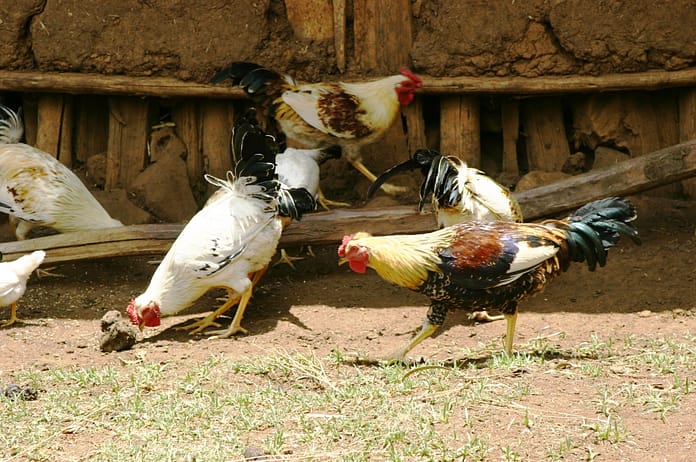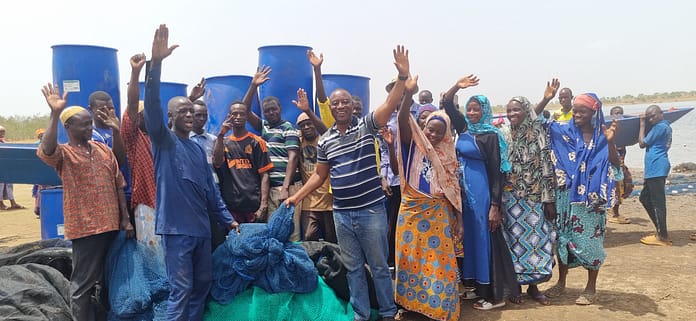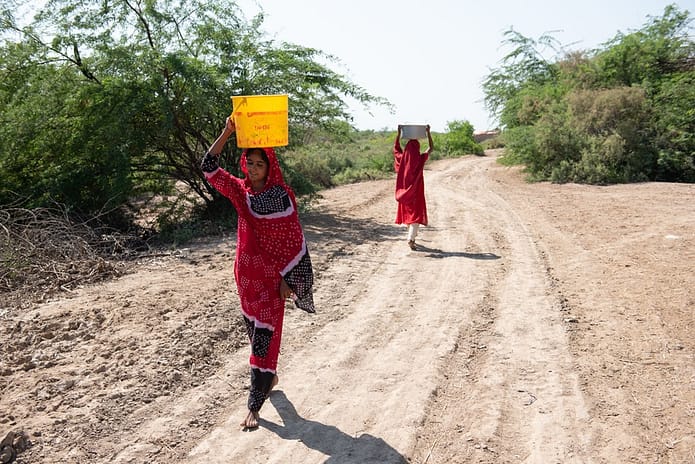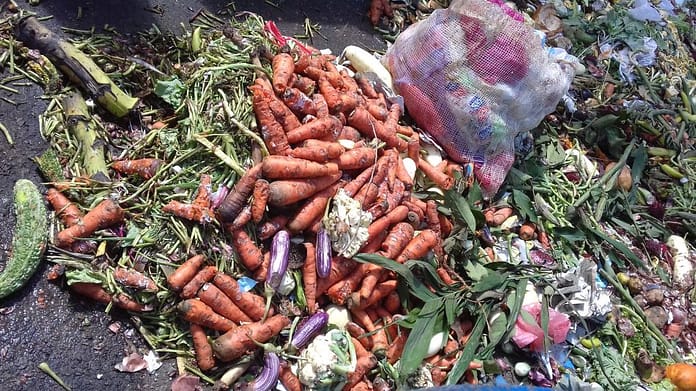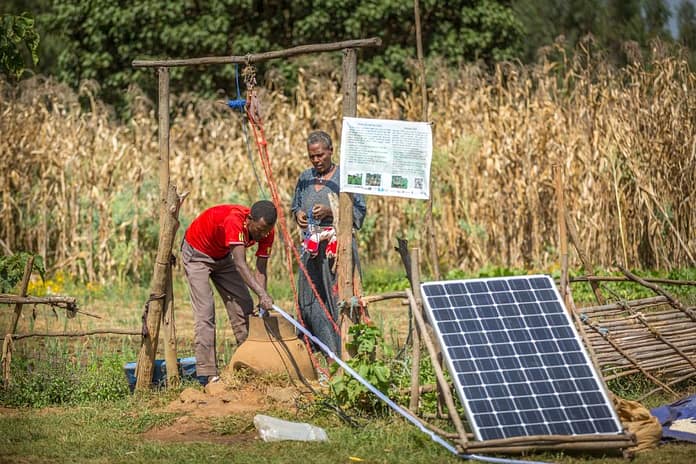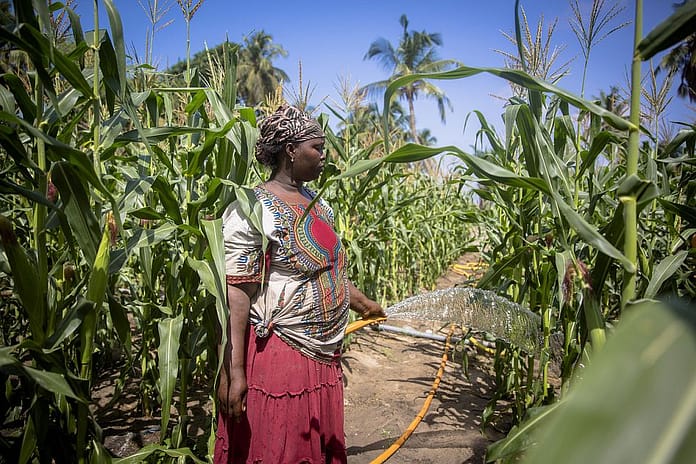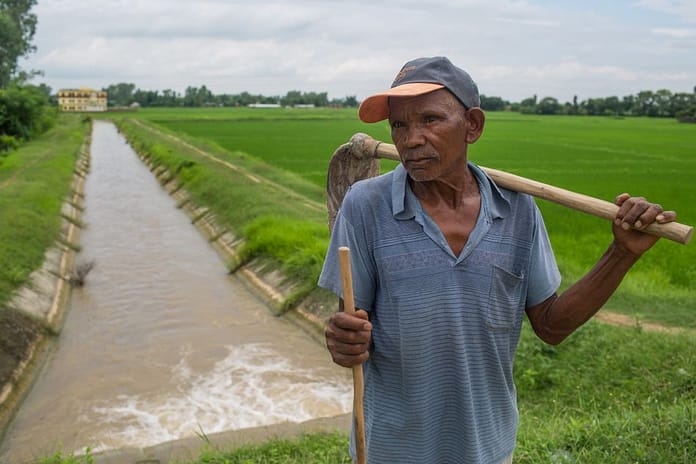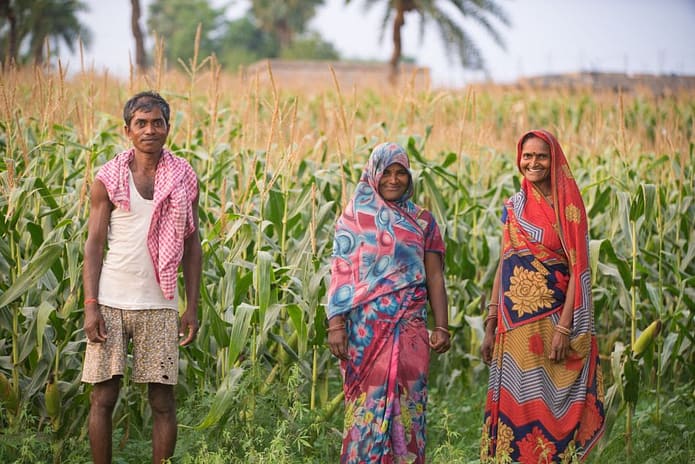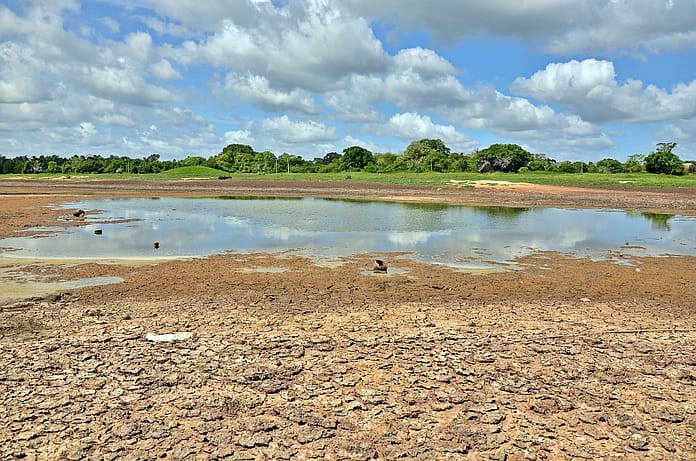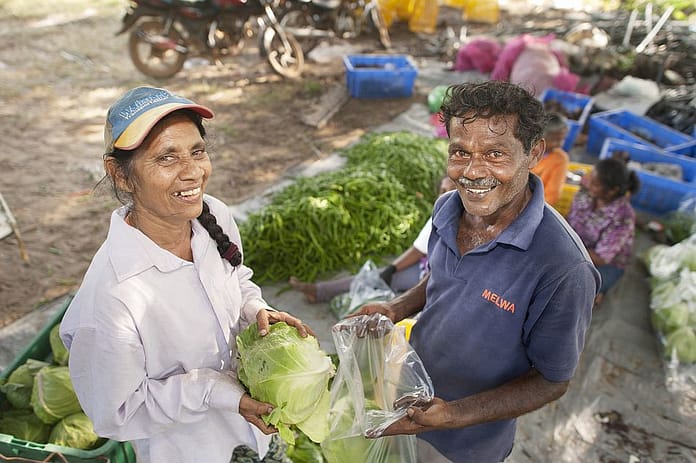Evidence-based irrigation scaling strategies co-developed by IWMI aim to accelerate innovation in agricultural value chains
By Thai Thi Minh, Senior Researcher – Innovation Scaling
Cocoa is often described as Ghana’s national tree, and it contributes around 30% of the country’s export earnings. However, production is being negatively affected by climate change. While supplemental irrigation could improve cocoa yields — particularly outside the main growing season — cocoa is largely rain-fed, meaning that little information is available about the economic and environmental viability of irrigated cocoa production.

A research intern hosted by PEG Africa, a solar irrigation equipment supplier, is helping to collect and analyze data on solar irrigation pilot farms. Overseen by IWMI, the results will be used to identify innovative business or finance models to market irrigation equipment in Ghana’s cocoa value chain.
This demand-driven research approach is part of internship and innovation grants (I2G), one of several evidence-based strategies IWMI has co-developed with its public and private sector partners under the Innovation Lab for Small-Scale Irrigation (ILSSI) and Africa RISING projects in Ghana, Ethiopia and Mali, and the Accelerating Impacts of CGIAR Climate Research for Africa (AICCRA) project in Zambia. The strategies aim to build capacity and make innovative water management and irrigation technologies available to small farmers on a large scale, helping to increase food production while strengthening the resilience of food systems to climate change. The five modalities that make up I2G are shown in Figure 1.

The value of internships with private sector entities
Targeting young professionals and entrepreneurs, this modality aims to boost innovation and stimulate entrepreneurship. Over a period of 6-12 months, interns help to develop and test innovative solutions that address specific knowledge and capacity gaps that exist within the company that is hosting them. At the same time, the interns gain valuable work experience in the private sector.
In Ghana, for example, two interns are working with Pumptech, another national solar irrigation equipment supplier, to develop digital data management and marketing systems. The systems will reduce errors in capturing customer information and help the company to market its products and services more effectively, especially to small farmers. So far, these and other measures supported by IWMI have helped Pumptech increase pump sales by more than 80%.
Innovation hackathon
In Ethiopia, for instance, the first hackathon was held in 2021 at the Bahir Dar Institute of Technology. The event was organized around four challenges identified with Rensys, a private sector irrigation equipment supplier, and several of the challenges were related to digitization of client assessment and tracking tools. Guided by regular feedback from Rensys, the winning teams developed their ideas and built prototypes. Six interns chosen from across the teams were then given a three-month contract to implement the tools in Rensys’ office.

Business incubation for innovation commercialization
The third I2G modality focuses on helping high-potential startups or small and medium-sized enterprises to succeed in irrigated agricultural value chains. The modality brings together capacity building partners (‘incubators’) — such as government entities, universities, and trade associations — and young innovators, startups, and students (‘incubatees’).
Together, they look for ways to commercialize irrigation-related innovations and develop the competences needed to set up and grow a business. In collaboration with Bongohive, a Zambian innovation and technology hub, the first incubatees will be enrolled this year.
Demand-driven research
Meanwhile, a lack of reliable data on agricultural value chains remains a major barrier to irrigation market expansion in many African countries.
The fourth I2G modality aims to bridge that gap. In collaboration with national universities and research organizations, IWMI identifies the irrigation-related knowledge needs of its private sector partners and develops relevant research topics. Like the intern being hosted by PEG Africa in Ghana, students are supervised throughout the research process to ensure relevant research and effective use of the results.
Integration of irrigation-related knowledge and analytical skills into educational curricula
As with modality 4, the fifth and final I2G modality is designed to close the divide between the research and private sectors. Instead of focusing on academic theses and research internships, however, it aims to integrate irrigation-related knowledge and analytical skills into existing educational curricula.
The fifth modality will be operationalized in Zambia, once suitable university partners have been identified, and can assume various forms — such as developing a new course that is a core component of BSc/MSc curricula or creating a practical project that students can implement under faculty supervision with public and private sector entities.
***
Moving forward, climate change will continue to present a complex set of challenges to food systems everywhere, but particularly in Africa. Through the five I2G modalities described here, IWMI is helping to bridge current knowledge and capacity gaps, and facilitating and accelerating sustainable food system transformation in the process.


